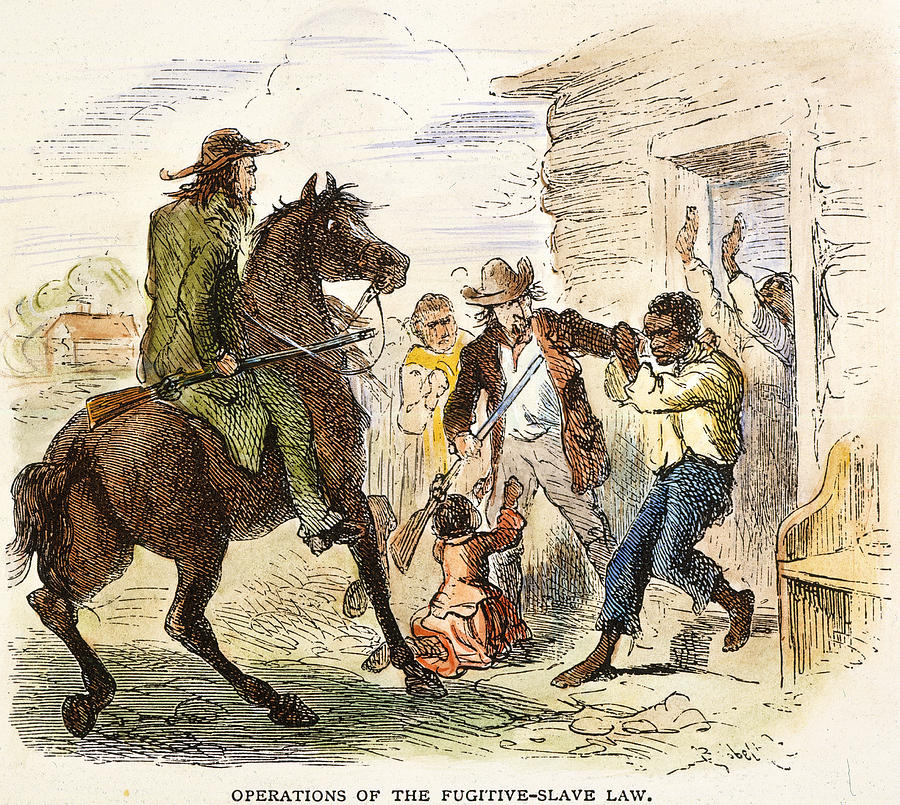
From the New York Times, "December 10, 1860: The Fugitive Slave Law."
Senator DOUGLAS has given notice of his intention to introduce a bill amending the Fugitive Slave law of 1850, so as to provide more effectually for the recovery of "persons held to service escaping from one State to another." We have no intimation of the character of its provisions. But if it should be framed in the proper spirit and with due regard to the exigencies of the case, it cannot fail to pave the way for action on the part of the Northern States, which may give the Union men of the South a better basis for their efforts to preserve the Union than they have at present.
There are two objects to be accomplished by amendments of the Fugitive Slave law, -- one, the more effective operation of that law in securing the return of fugitives, -- the other, the removal of those features of it which have put freemen at the North in jeopardy, and have thus led to the enactment of the obnoxious Personal Liberty bills. Fortunately, these measures depend upon each other. Whatever secures the latter, secures the former also. Mr. DOUGLAS knows enough of Northern sentiment to understand the necessity of removing all just ground of complaint, in order to secure the execution of the law. There is unquestionably a very strong feeling against the surrender of any fugitive slave; -- but this sentiment will yield to the conviction of the absolute and imperative Constitutional duty of surrender, if that conviction is only allowed fair play, -- by being left untrammeled and unhampered by valid objections to the law.

It seems to us, therefore, that certain concessions can be made to Northern feeling on this point, not only without the slightest risk of impairing the efficiency of the law, but on the contrary, with the certainty of increasing it -- and with the additional advantage of securing the prompt repeal of the Personal Liberty bills, which find their only support in the sentiment of hostility to these harsh features of the existing act.
This done, there is one other provision which should be made to secure the interests of the South in this matter -- namely, compensation for such of their fugitives as may be unconstitutionally " released from service," either by legislation or by violence, in any State. It is easy to find plausible objections to such a provision -- and somewhat difficult, perhaps, to frame its details so as to be perfectly satisfactory. But its main object is substantially just, and will be felt to be so by the great body of the people; -- and if there is a general agreement on the main principle, there will be no unconquerable obstacle in the way of giving it an acceptable shape.

The Chicago Tribune has a long and able article protesting against the whole scheme. We have no disposition to urge it in a controversial spirit, -- nor do we think any vindication of its essential justice and necessity required. In regard to its alleged expensiveness, however, we think the Tribune is entirely at fault, in assuming that 100,000 or 50,000 or any such number of fugitives would have to be paid for annually. We have no recent reliable statistics on the subject, -- but the last census returns gave the following statement of the number of fugitive slaves which each slaveholding State lost in the year 1850:
Alabama............... 29
Arkansas.............. 21
Delaware.............. 26
Florida................ 18
Georgia................ 89
Kentucky.............. 96
Louisiana.............. 90
Maryland.............. 279
Missouri............... 60
Mississippi............. 41
North Carolina........ 64
South Carolina......... 10
Tennessee............. 70
Texas.................. 29
Virginia................ 83
Total................1,011

As a matter of course the border States lose the most. Maryland lost 1 in 320 of the whole number of her slaves; Missouri, 1 in 1,450; Kentucky, 1 in 2,100; Georgia, 1 in 2,700, and Louisiana, 1 in 4,000. Since the date of these statistics the number of fugitives has probably increased, -- perhaps 50 per cent. -- which gives about 1,500 as the number annually lost to the South from this cause.
Any bill providing for compensation should be so framed as not to invite any relaxation of Southern vigilance to prevent escapes. We hope that the proposed amendments of Mr. DOUGLAS may consult the welfare of the whole country, rather than the resentments of any party or section, on this subject. (source: The New York Times; Copyright 2013 The New York Times Company)
No comments:
Post a Comment